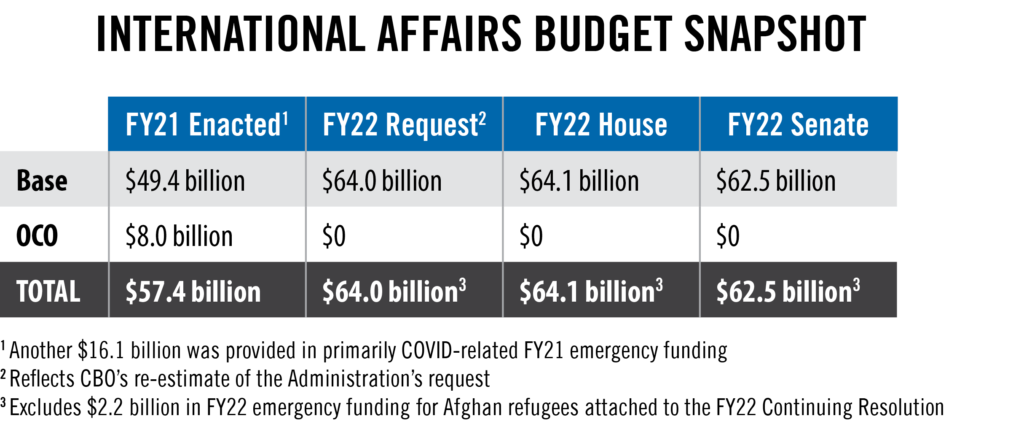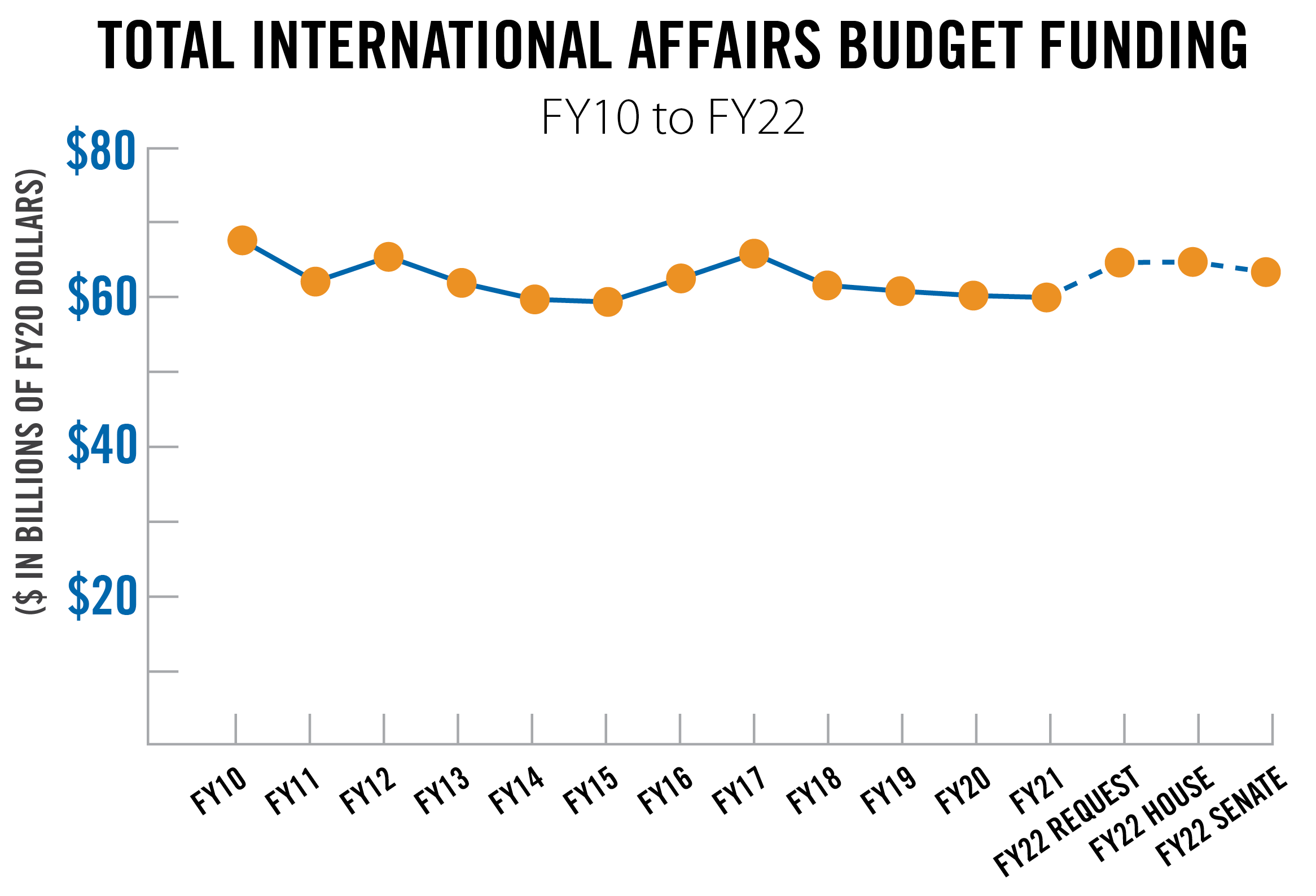

October 29, 2021
As the last 19 months have made clear, COVID-19 has dramatically changed the global landscape – severely impacting the world economy and jobs here at home and exacerbating crises from conflict to hunger to migration. Today, America is facing unprecedented growing global threats that directly impact the health, security, and economic interests of all Americans.
To confront these threats and advance American interests, the Administration’s Budget Request for Fiscal Year 2022 – released earlier this year – proposed the largest increase to the regular International Affairs Budget in over a decade and a $6.6 billion (12%) increase compared to the FY21 non-emergency enacted level.
The topline funding levels provided by the House and Senate for the FY22 International Affairs Budget similarly increase resources compared to the FY21 enacted level. However, while the House-approved level is $128 million (0.2%) above the Administration’s request, the Senate Appropriations Committee falls short of the request by $1.5 billion (2.4%).

To fight COVID-19 and prepare for the next pandemic, tackle growing humanitarian crises, and ensure American competitiveness on the global stage, the additional resources provided by the House and Senate for the FY22 International Affairs Budget are an essential down payment on America’s recovery, prosperity, and security. At the same time, experts have made clear that America must step up and do more.
There is a legacy of strong, bipartisan support in Congress for America’s development and diplomacy tools. In recent years, Members on both sides of the aisle have overwhelmingly rejected calls to dramatically cut international affairs programs and have worked together to ensure strong funding for the International Affairs Budget.

As negotiations between Congress and the Administration on final FY22 spending bills begin in earnest, the USGLC urges policymakers to provide no less than the House-approved funding level to ensure our international affairs investments truly meet today’s unprecedented global needs.
Get the latest news, advocacy, and event updates from the USGLC
Copyright 2024 USGLC | Privacy Policy
Notifications